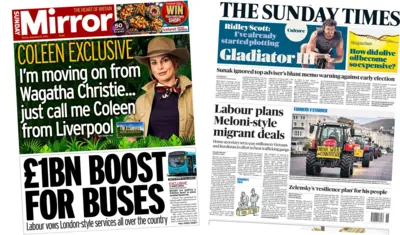We've updated our Privacy and Cookies Policy
We've made some important changes to our Privacy and Cookies Policy and we want you to know what this means for you and your data.
Australian miners fall on tax plans
Australian mining shares fell on Monday amid concerns over a planned tax on mining companies.
On Sunday, the Australian government proposed a new 40% tax on the profits of major resources companies, as part of a wider review of its tax policy.
The world's biggest miner BHP Billiton saw its shares fall 3% on Monday, while rival Rio Tinto was down 4.2%.
Miners have complained that the tax, planned for 2012, would push investment in mining abroad.
BHP and Rio Tinto are expected to be the hardest hit by any tax, as they have the most profitable mining operations.
But Australia's Prime Minister Kevin Rudd said the tax would raise around AUS$9bn (ÂŁ5.5bn; US$8.3bn) annually, allowing the Australian people a greater share in mining profits.
Rio Tinto reported pre-tax profits of US$7.86bn (ÂŁ5.02bn) for 2009, while BHP Billiton made profits of US$6.14bn for the last six months of the year.
Mr Rudd said the multi-national nature of the companies meant that a large proportion of the profits were not subject to Australian tax.
BHP is 60% Australian-owned while Rio Tinto is less than 30% Australian.
But the miners themselves have protested, arguing that the success of the sector has helped Australia avoid recession.
Taxing the industry, they argue, will risk harming the economy.
"These proposals seriously threaten Australia's competitiveness, jeopardise future investments and will adversely impact on the future wealth and standard of living of all Australians," warned BHP's chief executive Marius Kloppers.
Mining has seen a boom in recent years - particularly in iron ore mined in Australia - to feed China's massive demand for raw materials to fuel its industrial growth.
Top Stories
More to explore
Most read
Content is not available








